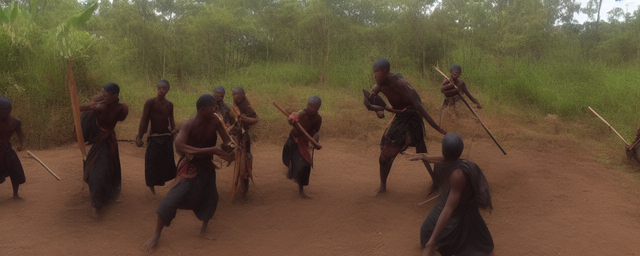
四库全书的危害
原|2024-04-25 15:40:58|浏览:100
The "Siku Quanshu" (四库全书), also known as the Complete Library in Four Sections, was a massive collection of Chinese literature compiled during the Qing Dynasty. While it was an impressive and comprehensive collection of texts, there were several potential drawbacks and criticisms associated with the "Siku Quanshu":
1. **Limited Perspectives**: The selection of texts included in the "Siku Quanshu" was curated by scholars of the Qing Dynasty, which means that certain perspectives, voices, and ideas may have been excluded or marginalized. This limited scope could restrict the diversity of thought and knowledge available in the collection.
2. **Censorship and Control**: The compilation of the "Siku Quanshu" was overseen by the imperial court, which means that there may have been censorship or control over the content included in the collection. This could lead to the suppression of dissenting or controversial ideas, limiting intellectual freedom.
3. **Consolidation of Power**: By centralizing such a vast collection of texts under imperial patronage, the "Siku Quanshu" could have been used as a tool to consolidate power and influence by the ruling elite. This centralized control over knowledge could be used to reinforce existing power structures and ideologies.
4. **Historical Biases**: The "Siku Quanshu" was compiled during a specific historical period with its own biases and perspectives. As a result, the collection may reflect the biases, prejudices, and limitations of that time, potentially perpetuating historical inaccuracies or misconceptions.
5. **Accessibility and Exclusivity**: Due to its massive size and the resources required to produce and access it, the "Siku Quanshu" may have been inaccessible to the general population. This exclusivity could limit the dissemination of knowledge and information to a privileged few, reinforcing social inequalities.
In conclusion, while the "Siku Quanshu" was a monumental achievement in Chinese literary history, it is important to recognize the potential drawbacks and limitations of such a vast and centralized collection. Its impact on intellectual freedom, diversity of thought, and historical accuracy should be considered when evaluating its significance.
猜你喜欢
- 茶的分类及代表品种
- 六大茶类的代表名茶分别有
- 茶的类型和代表
- 六大茶叶的分类及产地
- 庙的分类及代表
- 藻的分类及其代表
- 茶的分类及代表茶品特点
- 茶的分类及代表茶
- 简述茶类的分类及其代表性名茶
- 六大茶类的分类及代表茶
- 动物分类及代表
- 糖的分类及代表
- 茶的分类及代表茶叶
- 茶的分类及代表图
- 茶的分类及代表作
- 茶器按质地的分类及代表茶器
- 茶的分类及代表名茶教学设计
- 简述茶的分类及代表性名茶
- 请写出乌龙茶的分类及代表茶
- 法国雅文邑白兰地系列
- 雅文邑白兰地介绍
- 1952年法国雅文邑白兰地
- 法国雅玛邑白兰地
- 纽波利顿獒
- 法国犬品种
- 南非獒犬的优缺点
- 波尔多獒犬寿命
- 波兰狩猎犬
- 波尔多犬和罗威纳犬对比
- 波尔多犬和杜高对比
- 世界十大凶犬
- 护卫犬排行榜前十名
- 大红袍怎么泡效果好
- 大红袍怎么泡不开
- 大红袍怎么泡茶
- 大红袍怎么泡出来没颜色
- 大红袍怎么泡不苦
- 大红袍怎么泡多久
- 大红袍怎么泡才正确的特点
- 大红袍怎么泡没有柴味儿
- 大红袍怎么泡放多少合适
- 花香大红袍怎么泡
- 大红袍怎么泡茶好
- 大红袍是怎么泡的
- 大红袍怎么泡水好喝
- 大红袍用玻璃杯怎么泡
- 大红袍怎么泡味道浓一些
- 十大排名果花茶
- 十大花茶组合排名
- 十大花茶品种大全
- 十大花茶功效
- 十大花茶销量排行榜
- 十大花茶有哪些
- 十大花茶品种
- 十大花茶推荐
- 十大花卉排行榜
- 十大花卉
- 十大花茶调理内分泌
- 九五至尊秦昊明月关山
- 红茶冲泡工艺
为你推荐






































































